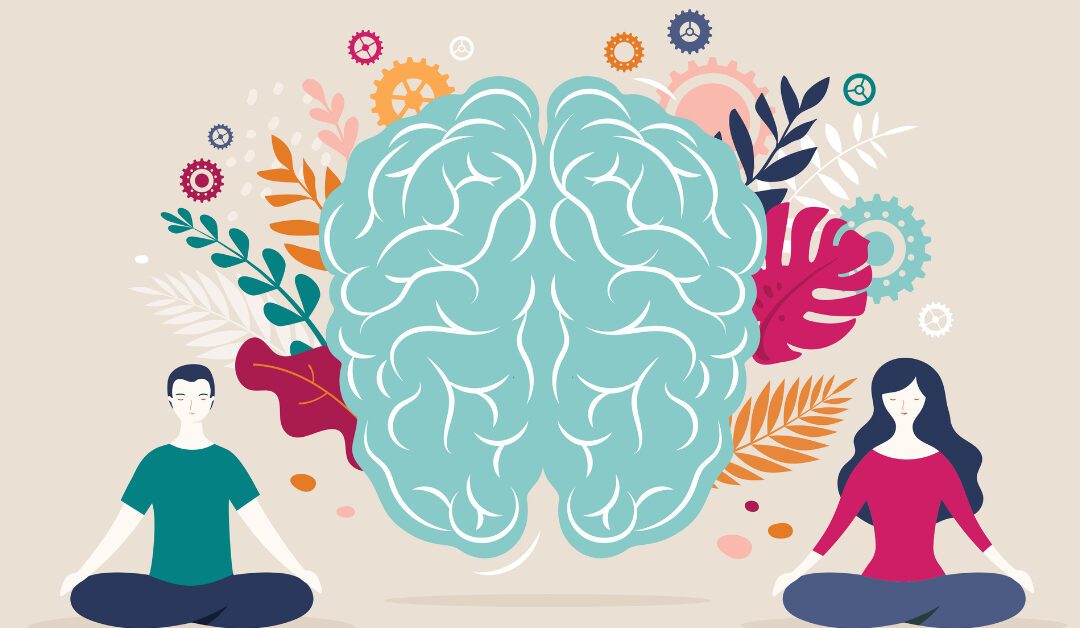Mental health plays a vital role in overall well-being. In today’s fast-paced world, people often overlook their mental wellness while chasing deadlines and juggling responsibilities. However, taking deliberate steps to care for the mind is just as important as maintaining physical health. Fortunately, mindfulness offers a powerful and practical approach to nurture mental stability and resilience.
Understanding Mental Health:
Mental health encompasses emotional, psychological, and social well-being. It affects how individuals think, feel, and act. It also influences how people handle stress, relate to others, and make decisions. When mental health suffers, every aspect of life can feel overwhelming. Therefore, maintaining strong mental health should be a top priority.
Strategies for Maintaining Good Mental Health:
To support mental well-being, individuals can adopt various proactive strategies:
1. Establish a Healthy Routine:
Creating a consistent daily schedule helps build structure and predictability, which reduces anxiety. Wake up and go to bed at regular times. Include time for exercise, balanced meals, and sufficient sleep.
2. Prioritize Social Connections:
Humans are social beings. Engaging in meaningful relationships boosts mood and provides emotional support. Reach out to friends or join community groups to avoid isolation.
3. Set Realistic Goals:
Clear, achievable goals promote a sense of purpose. Break large tasks into smaller steps and celebrate progress along the way. This approach builds confidence and reduces feelings of being overwhelmed.
4. Seek Help When Needed:
No one has to face mental health challenges alone. Talking to a counselor, therapist, or support group can provide tools to cope more effectively. Early intervention prevents issues from escalating.
The Role of Mindfulness:
Mindfulness involves paying full attention to the present moment without judgment. It cultivates awareness of thoughts, emotions, and physical sensations. Practicing mindfulness consistently can reduce stress, improve focus, and increase emotional resilience.
Mindfulness Practices to Try:
Here are a few simple yet effective mindfulness techniques:
- Mindful Breathing: Focus on the rhythm of your breath. Inhale deeply, hold briefly, and exhale slowly. When the mind wanders, gently bring it back to the breath.
- Body Scan Meditation: Close your eyes and slowly direct attention to each part of the body, from head to toe. This practice releases tension and enhances self-awareness.
- Gratitude Journaling: Write down three things you’re grateful for every day. This habit shifts focus from stress to appreciation.
- Mindful Walking: Walk slowly and notice each step. Feel the ground beneath your feet and observe the environment with all senses.
Effective Stress Management Techniques:
Managing stress effectively is essential for mental balance. Fortunately, several techniques can help individuals regain calm and clarity:
1. Practice Deep Breathing:
Deep, controlled breathing lowers the heart rate and reduces cortisol levels. Try the 4-7-8 technique: inhale for four seconds, hold for seven, and exhale for eight.
2. Exercise Regularly:
Physical activity releases endorphins, the body’s natural stress relievers. Even a 20-minute walk can significantly improve mood.
3. Limit Screen Time:
Too much screen exposure—especially on social media—can increase anxiety. Schedule tech-free time to reconnect with the real world and recharge mentally.
4. Engage in Creative Outlets:
Art, music, writing, or any creative activity offers an expressive escape and promotes emotional release. Creativity often serves as a form of meditation in motion.
5. Spend Time in Nature:
Being in natural environments reduces stress and restores mental energy. A walk in the park or time by the sea can do wonders for a cluttered mind.
Caring for mental health requires intentional effort and regular mindfulness practice. By embracing healthy routines, connecting with others, and applying stress management techniques, individuals can enhance their emotional resilience and overall quality of life. Start small, stay consistent, and remember—mental wellness is a journey worth prioritizing every single day.




